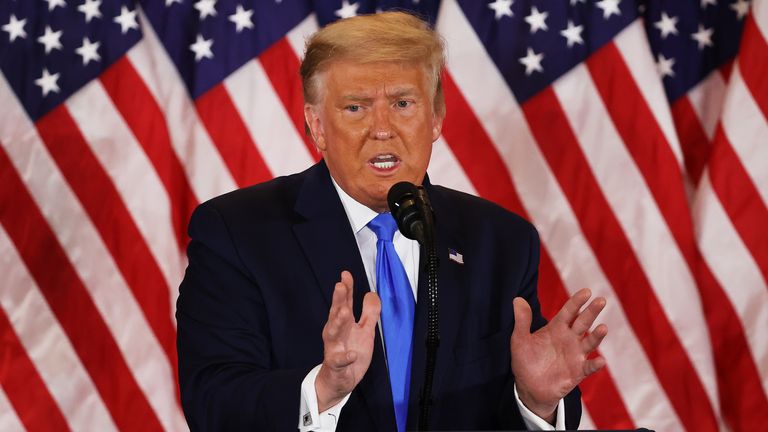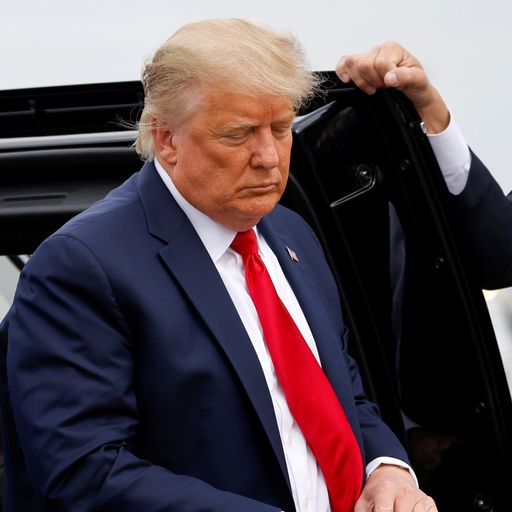As ever, Donald Trump's Twitter feed told a tale: "WE WILL WIN!" he tweeted, four days after HE HAD LOST.
If that wasn't a stark reflection of the distance still to travel, his secretary of state told a news conference around the same time: "There will be a smooth transition to a second Trump administration."
Inside the White House, something surely has to give. Publicly, there is no guarantee but privately, there is some guidance that it's a matter of time.
"What is the downside for humouring him for this little bit of time?" a Republican Party official told The Washington Post.
"Those lawsuits will fail, then he'll tweet some more about how the election was stolen, and then he'll leave."
So far, so reassuring. But the question is what trouble can President Trump cause between now and a Joe Biden inauguration on 20 January?
There might never be a concession from the current president but, in practical terms, that's not a necessity.
What does matter is the transition process - how soon and how smoothly it takes place.
However, it hasn't even started.
Something called the General Services Administration (GSA) is in charge of the handover of cash and keys to federal buildings and agencies.
The GSA enables a transition of government and the process begins only when its administrator decides an election is won. However, the current administrator Emily Murphy, who is a Trump appointee, is signing nothing.
The stalling has also deprived Joe Biden of access to intelligence briefings - something his Democrat colleagues say is compromising national security. They have floated the prospect of unspecified legal action if access isn't improved to the machinery of government.
Decision time for Mr Trump might come when his legal action is exhausted. Republican challenges have had no success so far and election officials stress that any change they make in the numbers would not change the election result.
Practical obstructions are matched politically.
While a handful of Republican voices have called for the president to fall on his sword, the more influential voices have not.
Republican Senate Majority Leader Mitch McConnell has said Donald Trump is "100% within his rights to look into allegations of irregularities".
The difficulty he and other Republicans face is the huge support that Mr Trump has brought to the party.
His influence matters moving forward, particularly with regard to two hugely important senate "run-off" contests in Georgia.
If Democrats defeat Republicans in both January contests, they will take control of the Senate (with the addition of a vice-president's casting vote) and it would have a huge bearing on Mr Biden's presidency and its power to pass legislation.
:: Subscribe to the Daily podcast on Apple Podcasts, Google Podcasts, Spotify, Speaker
Republicans see the need to keep Mr Trump and his followers inside the tent through the Georgia campaign and beyond.
While there may be many who have tired of Mr Trump, they see the hold he has on the party's voter base and will calculate the extent to which their best interests are protected by indulging his.
The question is how long that can last.
The president has been untypically camera shy, going several days without scheduling any event with media access.
There are, however, glimpses of a lame duck unleashed. With two days of his defeat, President Trump fired his defence secretary Mark Esper, by Twitter, and there is growing speculation the heads of the FBI and CIA will be next.




